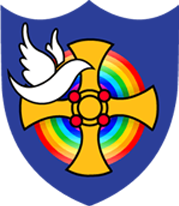How we learn in Nursery
EYFS Framework
The areas of learning within the framework are:
- Personal, social and emotional development
- Communication and language
- Physical development
- Literacy
- Mathematics
- Understanding the world
- Expressive arts and design
Further information on the framework and these areas of learning can be found at this link.
The curriculum is based around topics and themes suggested by the children. The children are closely involved in deciding which topics we cover and opportunities are provided to ensure child-initiated and adult-initiated learning takes place. We plan from the EYFS framework on a weekly basis to ensure your child is provided with a broad and balanced curriculum. A wide range of activities are made available in all areas of Nursery.
An investigation area - here children:
- Observe changes and properties of materials
- Develop their skills with simple tools and equipment
Maths activities area - in this area children:
- Begin to use number names in their independent play
- Explore shape and space
- Make patterns
Large construction area - in this area children will:
- Use their imagination to build models and structure
- Develop joining and fixing techniques
- Explore and use a variety of simple tools
Small world area - here children:
- Develop an understanding of the worlds around them through toys such
- Recreate places they know
- Create imaginary worlds
Water area - here we help children to:
- Develop awareness of shape and capacity
- Use appropriate mathematical vocabulary
- Develop imaginative vocabulary associated with water
Reading / book quiet area - this area helps children:
- Develop story telling vocabulary
- Learn how to handle books appropriately
- Develop listening skills
- Enjoy books and stories
- Learn simple computer skills
Playdough area - here children will learn to:
- Use small tools
- Learn to manipulate the material to make objects for imaginative play
- Learn vocabulary related to sharing, dividing, stretching and changing shape
- Develop fine motor control
Mark Making Area - this area starts children on the process of learning to write and they will:
- Gain the confidence and skill to write and draw with a variety of mark makers
- Explore representations of letters and sounds
- Begin to recognise and name some letters and words
- Begin to understand the different reasons for writing through imaginary play situations
Sand area - in this area children will:
- Explore the textures and characteristics of wet and dry sand
- Create real and imaginary worlds through imaginative play
- Explore shape, space and measure
Art / craft / creative area - a variety of materials will be provided to allow children to:
- Make representations through drawing, painting and collage
- Experience a variety of materials, colours, shapes and textures
- Create 2D and 3D representations
- Use a variety of tools and equipment
Role play area - this area helps children to:
- Use language to imagine, try out and recreate roles and experiences
- Represent objects through imaginative play
- Create imaginary worlds
Outdoor area - this area gives children the opportunity to:
- Develop an awareness of space, for themselves and in relation to others
- Develop their control and coordination using a range of large and small equipment, building their confidence in a safe environment
- Travel around, under, over and through simple balancing and climbing equipment
- Use the outdoor environment as a stimulus for creative and imaginary play, using a variety of equipment
Our outdoor areas on our school site are extensive and they include a grassed area as well as access to soil, sand and water, fixed play equipment, playground markings, a mud kitchen and den building equipment. All these elements are designed to build and extend children’s vocabulary, to develop co-ordination and manipulation skills and provide a stimulus for creativity and imagination. Children will learn important personal and social skills through their interactions in the environment. They will learn to share, take turns and co-operate in a group. They will be encouraged to respect the needs and feelings of others and develop an understanding of right and wrong.
This learning environment will encourage independence and gives experience of making choices, solving problems and being challenged. The children will learn to take responsibility for dressing themselves and for simple personal hygiene routines. Children will learn how to use tools and materials safely and gain self-confidence.

